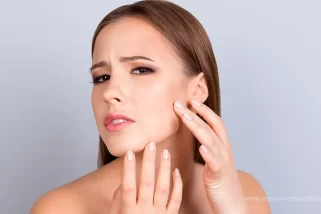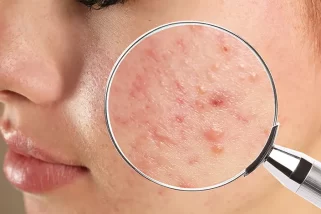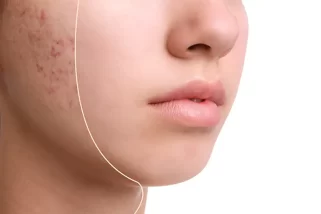In This Article
Most people think that moisturizing heightens the risk of skin breakouts. While you should be aware that not all skin care products can be effective in the fight against acne, it is worth noting that hydrating has several benefits.

There is a wide range of moisturizing products that will help keep your skin supple without causing an oily mess. There is mounting evidence suggesting that there are many ways to moisturize your skin as it can effectively prevent skin breakouts.[1] To find such helpful products, you should first know the right ingredients for your skin type.
1. Apply Acne Treatment before Moisturizing
After washing your face, apply an appropriate acne treatment before heading on to moisturize. Ensure that this treatment only targets the affected or prone areas. It gives the active ingredients to penetrate to the deep layers of your skin where they are needed the most.
Acne treatment followed by moisturizing helps restore your skin balance while at the same time soothes the dryness usually caused by topical treatments. If you use moisturizer before acne treatments, the active ingredients may not be absorbed by your skin.

Acne Treatment before Moisturizing
2. Use Oil-Free Moisturizers
If you have oily skin that is prone to zits formation, there is no need of applying an oil-based moisturizer since it doesn’t need more moisture. Go for water-based moisturizers that are specially formulated for breakout-prone or oily skin types. Check carefully for the ingredients to find out if there is one that can trigger breakouts.
If you have sensitive skin, look for ingredients like glycerin that calms the skin. Glycerin absorbs moisture from the atmosphere keeping your skin balanced and hydrate your skin quickly.[2] Other ingredients to check include salicylic acid and benzoyl peroxide that fights acne and maintain moisture balance in your skin.
3. Select a Variety of Moisturizers

Variety of Moisturizers
There is no single moisturizer that will fit every area of your skin. You will notice that manufacturers recommend additional products clearly indicating where you should apply on your skin. Although no scientific evidence is there to support that the skin at different locations on your body requires different moisturizing ingredients, it is advisable to select at least two. The quantity of moisturizer to use on your skin may differ.
For instance, if you have dry skin, you may require more moisturizer on your cheeks or forehead as it essential to hydrate your dry skin.[3] For people with oily skin, they may also need moisturizer on the sides of the faces at one time or the other.
4. Use Lightweight Lotion
The formula counts when it comes to cosmetic products for people prone to acne. Cream moisturizers usually contain fats and oils commonly known as lipids and specifically meant for dry skin types. If you have oily skin, serum or lotion is a better choice than cream as it moisturize your skin from the inside out.[4] In case it feels heavy in your palm, add a few drops of water into the moisturizer before you apply.
5. Avoid Clogging Moisturizers
In reference to Karen R. Stolman, MD, Dermatology from Intermountain Healthcare, you should moisturize even if you have acne using non-clogging or non-comedogenic facial lotion or cream. She recommends at least once an ever day try to hydrate your face naturally.[5] Dryness and inflammation in the skin can sometimes clog your pores if they go unchecked. They can boost acne formation. Stolman says that there are some over-the-counter or prescription drugs that can cause dryness and inflammation, and, therefore, gentle moisturizer should be a part of daily routine.
6. Use a Moisturizer with SPF
It is worth noting that the main reason you should moisturize is not only to add moisture, but also to keep it locked inside your skin while offering protection from the UV rays of the sun. It means that there is no need of extremely drying out your skin before you apply a moisturizer.
Some skin experts recommend that you should apply a moisturizer immediately after cleansing your skin. You may pat your face dry to get rid of drips, but moisturize when your skin is still damp and soft. Wear a moisturizer or hydrate your face after sunburn with a sun block every morning before applying makeup or foundation to help moisture percolate to deeper layers of your skin.[6]The sun block keeps your covering from burning while preventing other problems to your acne-prone skin.
7. Use Water

Use Water to Moisturize
Water happens to be one of the effective way to moisturize your skin.[7] If you don’t prefer wearing makeup, splash your face with a little water a few times a day to keep it toned bright and prevented flaking or peeling.
If you have sensitive skin that is prone to zits, try facial waters to soothe it because they hydrate your skin naturally.[8] This water is collected in mineral springs and contains natural ingredients such as selenium, magnesium, and sulfur, which are found in moisturizers.
Conclusion
Moisturizing is an essential step in any skin care regimen for a bright, radiant skin that is young looking. However, some moisturizers when done inappropriately can trigger a formation of zits or breakouts. Luckily, you can prevent such mishaps by following the manufacturer’s instructions on any moisturizing product of your choice. Consult a skin care expert if you think a product is contributing to zit formation or skin breakout.
Was this article helpful?
8 Sources
We review published medical research in respected scientific journals to arrive at our conclusions about a product or health topic. This ensures the highest standard of scientific accuracy.
[2] hydrate your skin quickly : https://www.ncbi.nlm.nih.gov/pmc/articles/PMC9205919/
[3] hydrate your dry skin : https://pubmed.ncbi.nlm.nih.gov/30998081/
[4] moisturize your skin from the inside out : https://www.ncbi.nlm.nih.gov/pmc/articles/PMC4086530/
[5] hydrate your face naturally : https://www.ncbi.nlm.nih.gov/pmc/articles/PMC5849435/
[6] hydrate your face after sunburn : https://www.ncbi.nlm.nih.gov/pmc/articles/PMC6447356/
[7] effective way to moisturize your skin : https://www.ncbi.nlm.nih.gov/pmc/articles/PMC2908954/
[8] hydrate your skin naturally : https://www.ncbi.nlm.nih.gov/pmc/articles/PMC4529263/








 This article changed my life!
This article changed my life! This article was informative.
This article was informative. I have a medical question.
I have a medical question.
 This article contains incorrect information.
This article contains incorrect information. This article doesn’t have the information I’m looking for.
This article doesn’t have the information I’m looking for.